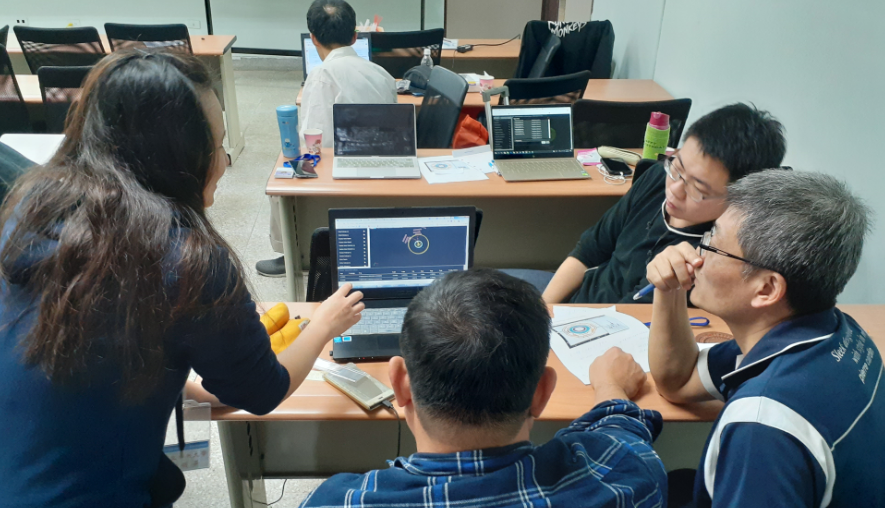Friday Flyer - February 21, 2020

Spotlight on International Masterclasses
International Masterclasses (IMC) start next week on Wednesday, February 26, with three ATLAS masterclasses, an LHCb masterclass, and a videoconference moderated from CERN. They go all the way to April 9, where two institutes in Brazil will connect with Fermilab to discuss their CMS results. (And there will likely be a few more "off-shell" masterclasses after that.) You can see the breadth of masterclass offerings and locations in the CERN videoconference schedule and the Fermilab/TRIUMF videoconference schedule. There is some excitement this year with a new, exciting CMS masterclass and several new masterclasses. You can get a taste at the IMC homepage. Not in a masterclass yet? It is pretty late but not out of the question. Contact Ken—the sooner the better—and he will try to help. And don't forget to follow IMC on Twitter and tweet your masterclass experience at #physicsIMC!


News from QuarkNet Central
Center leads (mentors and lead teachers): If someone from your center has not already done so, please complete the 2020 RFP form as soon as possible to request support for center activities in 2020. Contact your QuarkNet staff with any questions.
The latest IMC circular is out today with a focus on videoconferences. If your group is not yet registered for International Masterclasses, please contact Ken as soon as possible. Check the videoconference schedule.
There is still time for teams to put together proposals for Beamline for Schools (BL4S). Check out the BL4S notice from CERN on Twitter.

Physics Experiment Roundup
The ALPHA experiment at CERN uses the Antiproton Decelerator to slow down antiprotons so they can be captured and combined with positron to make atoms of antihydrogen. Now ALPHA has begun to study the fine structure of antihydrogren. Read the press release in Interactions and the scientific paper in Nature.
For the far site of DUNE at Sanford Lab in South Dakota, manipulation of matter is more about moving rocks. Fermilab News reports on the pre-excavation work going on in order to eventually install the massive neutrino detector.

Resources
APS Physics has some interesting "synopsis" articles this week. If computing for HEP is your interest, you might read about solving knotty problems in neutral networking. Then there is the three-body problem on the atomic scale along with electrons shaping up. Then there is a very timely article on predicting contagion speed.
Nuclear physics is a strong (and weak) partner to particle physics. You can find some nice nuclear physics education resources at the Navigating Nuclear website. Hat tip to Virtual Center teacher Nicole Preiser!

Just for Fun
I had almost nothing: just one semi-informative XKCD. I called a meeting of the FF staff, looking for "Just for Fun" ideas. Old Newton from the research department just frowned. Lise from down the hall looked at me like the topic was radioactive. Then what's-his-name, cub reporter, got his nerd on and said, "Maybe someone has made a video about the physics of the latest Star Trek." "Kid," I said, "you could be onto something. Now get back to 1060 West Addison and do your job."
I finally had a lead. I searched "Piccard physics" good and hard. No Star Trek but videos about this Auguste Piccard guy. Got to admit, they are fun, if 1930's expeditions into the stratosphere are your idea of fun. Take a look at 10-1/2 Miles Above the Earth and Professor Piccard Relates His Story. Or do your own search: there's more.
QuarkNet Staff:
Mark Adams: adams@fnal.gov
Ken Cecire: kcecire@nd.edu
Spencer Pasero: spasero@fnal.gov
Shane Wood: swood5@nd.edu
